Interview With Kaci Hill
E. Stephen Burnett: Good afternoon.
Kaci Hill: Greetings and hail. Had a good day?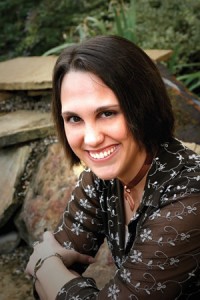
E. Stephen Burnett: Indeed, though itās not over yet. Still need to write my column for Spec-Faith on Thursday, which Iāll probably try to do tomorrow. And here I thought I could work a whole week in advance by reposting my Visitation review. ā¦ Ha, ha.
Kaci: Iām glad you liked The Visitation. I laughed my head off during that one.
ESB: (Warming up the olā interviewer side of the mind ā¦)
Kaci: Not a problem. It takes anywhere from a few minutes to a few days for the mind to shift (depending on what itās shifting to). Amazing how that works out.
ESB: Indeed. Just last week I spent much of Wednesday afternoon doing, well, more-introverted tasks. And then my wife and I went to a church dinner and prayer meeting, and I literally had to go off into a dark room, pray/talk-to-self, and fumble for that invisible accelerator slider from āintrovertā to āextrovert.ā I find caffeinated beverages also help.
Kaci: Exactly!
I warn the girls in my home group: āOkay, if Iām acting a bit off, Iāve been alone too long.ā Now, anytime I get weird, one girl says, āYouāre in writing mode, arenāt you?ā
ESB: Thatās a good topic to start us off, actually.
So, Kaci ā are you introvert, extrovert, or in between, or variable depending on other factors?
Kaci: Iām what Mom calls āan extroverted introvert.ā Iām not antisocial; I love people. But whereas an extrovert is energized by lots of people, I eventually become emotionally drained. I figured out in college I have to keep an even ratio of social-to-solo time. Too much of one or the other and I go a little crazy.
ESB: Sounds familiar ā when might you have found out that many others, especially writers, can be the same way?
Kaci: Probably after one or two writersā conferences. Writers are funny: We tend to assume no one else gives a rip. Then you throw us all in one room and we wonāt talk about our own stories. It didnāt come to me consciously until one published author (youāll know the name) was talking with me, and, I donāt remember the context, but he said, āIām not like a lot of writers. Instead of being introverted, Iām really extroverted and social.ā (Thatāsā¦paraphrased, but the gist.)
ESB: (You must have been with the cool writers! At the last conference I visited ā this is not a reflection on the conference! ā some others never asked about my work in progress, but wouldnāt stop talking about theirsā. )
Meanwhile, you have publishing credits already, having helped Ted Dekker with Elyon and Lunatic in his Circle Trilogy spinoff series, The Lost Books. What sorts of reactions do you get, I wonder, at a conference, or with a group of other writers?
Kaci: (I saw three groups: The one who is not published, but tended to think more of themselves than they should, and therefore said more than they should; and the published group who spoke little of their own works but deeply were interested in anyone who came in ready to actually discuss a WIP and make it better; and the unpublished group who would accept no criticism.)
I havenāt been to a conference in a couple years (though I will be going to one close by in September, and would then better be able to answer that question). Honestly, I think my biggest fans are the faculty and students at the school I substitute teach at. Theyāre always very encouraging and Iām highly appreciative. From what Iāve gathered on the internet, the reactions on L&E are a little mixed ā but thatās probably normal. For the most part, people Iāve actually met in person or have talked to me through Facebook have thought the co-authoring was ācool.ā Mostly I get, āSo how did that happen?ā My answer, āGod has a demented sense of humor.ā
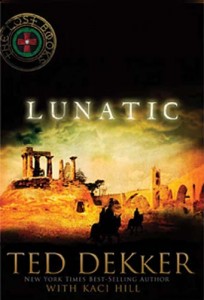 ESB: (Chuckling) You think God was making a joke by arranging your writing partnership with Dekker?
ESB: (Chuckling) You think God was making a joke by arranging your writing partnership with Dekker?
Kaci: Oh, I know so. I think he laughs nine times out of ten. I think he decided itād be funny to throw something like that in my lap. Seriously, I am not hyper-spiritualizing or exaggerating: That was an act of God. And it was funny. Therefore, more proof God has a healthy sense of humor.
ESB: Letās jump back a few years and talk ātestimony,ā as Christians often call it. Youāve been writing since childhood, and something has drawn you more specifically into the realm of Christian fiction. Whatās your faith background, and writing background ā and your view of how the two overlap?
Kaci: Iāve been both for so long thereās no separating the two. As a teenager, my writing was a prayer: a dialogue with God, a way of asking questions and pondering the answers. I come from a Christian family. I grew up in church. I graduated from a private Christian school. My first answered prayer was a baby sister at age 5. There was no āsacred/secular,ā and there was no āChristian fiction.ā Yes, I was reading mostly Christian fiction, and still mostly do, but I wouldnāt have thought of This Present Darkness as anymore āChristianā than, I dunno, Anne of Green Gables or The Whipping Boy. They were books. (A better comparison might be Narnia ā which I didnāt like until Ā jr. high ā and The Golden Compassāa book I also just didnāt find that interesting as a 5th grader. If youād asked me which was āChristian,ā Iām not sure Iād have immediately been able to answer, because, in my head, they were books. One had Christian symbolism, one didnāt.)
ESB: Some Christians might be yelling at you for having read The Golden Compass. Others might be tempted to do the same, for your having waited so long to read Narnia! While other girls might be enjoying more books like Anne of Green Gables, what did you find attractive about speculative fiction?
Kaci: Well, in my defense, I think I tried to read The Silver Chair first, and we all know how frustrating Eustace is (and how whiny Jill was). And I loved Anne of Green Gables. Sheās a storyteller. As far as speculativeā¦again, thatāsā¦a funny story. Iāve an overactive imagination. I wasnāt into Cinderella or all those, but I loved Peter Pan, Robin Hood, and Pinocchio. I was really into the supernatural: Thatās why Frank Peretti and Bill Meyers were an attraction to me. I went through an end times phase. I was fascinated with supernatural, paranormal, cataclysmic events. I liked conspiracies. Again, the writing and the faith overlapped: I was reading all the OT prophets, Revelation, anything that smacked of supernatural just fascinated me. So I think, ultimately, that was it. Speculative feeds that exploration of things unseen.
ESB: Left Behind series, perchance? I had to ask.
Kaci: I read all the way up through the one right before Glorious Appearing. (When I snapped out of my end times phase as a 10th grader, I snapped out hard.) I didnāt like the ending, didnāt think there was a chance either main character could survive, and figured I knew what Glorious Appearing was going to be about. So I was done. Plus, I think my tastes had changed. I was getting into Dekker and such by then.
(Case in point: Iām watching Unsolved Mysteries while we chat. Hehe.)
ESB: (Ha, ha!) (Plus Jesus didnāt come back and the Beast didnāt take over after the Y2K computer crisis, which was a slight bummer.) What did you like about Dekkerās works, compared with others? And by then, were you also trying your hand at your own stories?
Kaci: (Oh, do not get me started on Y2K. I have several entertaining stories.) I wrote my first story on paper as a 5th grader; and I was singing stories before I could write. I switched to a laptop in 10th grade, but never considered publication (or doing this as more than a hobby) until somewhere in college. Per Dekker, my first of his was Heavenās Wager. Witty, crazy characters & plot, and it fed my supernatural tastes. Funny, Iāve never thought about it. I just kept picking up more Dekker books, because when I find a writer, I tend to read everything of them I can find. *thinks* Something just clicked. And I kept reading. I think the next was When Heaven Weeps, and I just fell in love with Janjic. Iāveā¦read pretty much in order of publication. I was getting serious about the time Black came out (as a writer).
ESB: Weāve talked on Speculative Faith and elsewhere about the fact that, even with your coauthor credits, youāre actually somewhat new to the fiction scene ā especially the Christian fiction subgroup. Thatās quite a rarity. What might you see about The Industry (or Industries) that others may not?
Kaci: Hum. Iām working on how to articulate that one. For one, Iām pretty late into the business end. Iām finding Iām really needing to use those conferences to explore that end. Second, I didnāt know CBA/ABA or a distinction thereof existed before I got into college (where I started actually using the internet) and all these people were in arms over what was appropriate or not, what CBA allowed and didnāt, these people argue this and that and this group will freak if you do that, and that group wonāt publish us, on and on and on.
I donāt know. Recently Iām starting to realize how familiar that all is. Being a church brat (read: person who grew up in church) whose parents were pretty involved, you hear a lot and learn more by speaking less. So, in the end, I think Iāve started to see this not as a CBA/ABA issue but something more along the lines of the Legalists and the Liberals (if youāll pardon the gross generalization). In other words, what is acceptable in print is acceptable in print. What isnāt, isnāt. Iām not going to make the distinction. Itās glorious, or itās grotesque.
ESB: Possibly related to the question of what causes sin: oneās own heart, or more the assumption that a Thing outside yourself is to blame ā remove the Thing, and it better prevents the sin.
Kaci: Right. On the one hand, reading a book where a guy curses every other word is not going to insist that I curse. On the other, it might take more of a conscious effort. An example would be this: I donāt swear. Itās just not part of my vocabulary. In college, however, I was around people who did, enough that Iād be doing it in my head without really realizing it. It took a more conscious effort the more I was around those people, but it didnāt insist that I curse.
(I will say, on the other hand: Excessive swearing is just that. Itās overdone and detracts. But thatās another discussion.)
ESB: Something thatās surprised me in the last few years is finding how much that theology ā that nonfiction, real-life stuff ā affects how we view, and write, fiction. What are some themes fresh in your mind, that inspire your writing? Or do you sort of approach the story first, and let themes embed themselves?
Kaci: For me both are a bit organic. Again, I canāt quite separate the two, anymore than I can really separate bone and marrow. However, yes, whatever Iām studying, or whatever Iām trying to work through, will wind up influencing the story ā consciously or not. Like, at one point I was fascinated with the idea of God as a Lover. As a King. So I wrote that. I was fascinated with a redeemed traitor. So I wrote that. Recurring themes for me tend to be Light & Dark, redeeming the totally unredeemable (probably why Edmund is a favorite). I write the story. The themes work themselves out on their own. When I realize them, I go ahead and let them do their thing. Like, right now, Iām letting the list of armor in Ephesians take on flesh and blood. Each piece defines their character, perceptions, strengths, weaknesses, and spiritual gifts. So Iāll look at the guy whoās righteous and think, āWell, what would he look like? What does it mean to be righteous? Whereās his weakness?ā
The whole idea of godliness/righteousness/holiness has come up a lot recently, so heās been easy to explore. But thatād be one example.
Iām quite enamored with what true Christianity looks like. Flesh and blood, day in/day out, hands in the dirt Christianity.
ESB: Deep Magic indeed. That leads me perhaps to a third-to-last question, about what weaknesses you might see in the current field of ārighteousā storytelling, or Christianity altogether ā or the intersection of the two.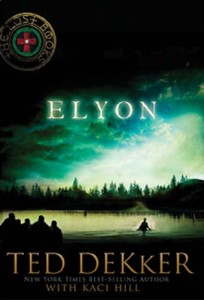
Kaci: Well, I think we have no concept of it, as a whole. American Christendom right now is a bit turned on its head. (And I speak only as someone trying to figure it out myself.) My reading says, righteousness brings justice down on the head of the oppressor and shields the oppressed. Righteousness is less concerned with the outside of the cup and worms its way into the heart. It wasnāt that Jesus didnāt care the adulteress was what she was; it was that righteousness offers compassion to whoever will take it, and judgment to those who will not accept his compassion (Ezekielā¦18?).
As for righteous storytellingā¦āBe excellent in what is good and innocent of evil; and the God of peace will soon crush Satan underneath your feet.ā
I think, honestly, the weakness of the guy who wants to write what he wants with no restraint is like a clanging gong: Loud, lots to say, but in the end, heās possibly more justifying his own indulgence in the darkness than anything else. I may write a nasty fellow, but Iām certainly not going to defend him or justify it. Maybe qualify it. And I think the guy who wants only ācleanā fiction is doing the same in reverse. At some point, both are missing the point.
ESB: How, then, do you hope to find the balance between the two in your own writing ā in your current work-in-progress, or in whatever is next for you?
Kaci: For my current project, Iām challenging myself on subtlety. Can I write a character soliciting another without any mention of the act? (Thatās just how Iām choosing to do it this time, because Iām trying to stay on a particular level.) Far as I can tell, less is more. In the end, I have a list of questions I ask: Is this serving my purpose? Is it distracting? Is it excessive? Is my mind going to carry this farther than my fingers actually type? (Thatās a big one for me: the pen stops long before the mental movie reel does ā and at that pointā¦I have to ask if Iām in too deep.) Am I comfortable with other people actually reading what I just wrote? Could I read it out loud in public, or would I be embarrassed?
I don’t know. I tend to know when I, personally, am going too far. When I read, I’m usually okay as long as whatever’s happening isn’t just gross and/or out of place (the usual culprit).
ESB: Your current WIP: what’s your hook?
Kaci: Beowulf’s town contains an abandoned, haunted mansion and a series of legends surrounding a horrific event. People tend to mysteriously disappear without warning or trace. Beowulf’s the first to catch a glimpse of the culprits, but when starts sniffing he’s getting countered by a series of cover-ups at the highest levels. In the end, a girl running from a stalker may well be how he gets his answers. Not that the answers will be pleasant. And assuming they survive.
ESB: And the final question: what might have you liked to have been asked and may like to answer or say now, for Spec-Faith readers?
Kaci: Offhandā¦I’m not sure. I wasn’t sure if you were going to go more with biographical information or more the writing end of things. I feel we covered both pretty well. Thoughts?
ESB: From me? Just that I look forward to hearing more from you about all of what we covered and more, when you’re writing for Spec-Faith — every other Wednesday, am I right?
Kaci: Yessir.
ESB: Excellent. If you wish, end this interview with a favorite sci-fi, fantasy or fiction quote! And thanks so much for a great conversation, and for signing onto the starship Spec-Faith.
Kaci: Awesome. Sure thing. This was fun.
“I have you now, Will, and I will not let you go.” ~ Bran, “Scarlet” by Lawhead


































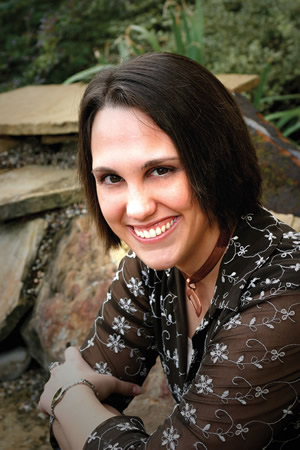



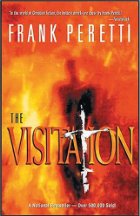 My question: Why canāt a Gospel-driven Christian be both/and? C.S. Lewis has in-depth stuff, of course, but is there anything else?
My question: Why canāt a Gospel-driven Christian be both/and? C.S. Lewis has in-depth stuff, of course, but is there anything else?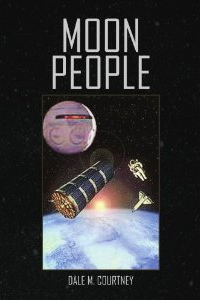
 And here is the cover. Yes, it has a spaceship there. This tells you that it is a Book about Space. It also tells you that by comparison,
And here is the cover. Yes, it has a spaceship there. This tells you that it is a Book about Space. It also tells you that by comparison, 


